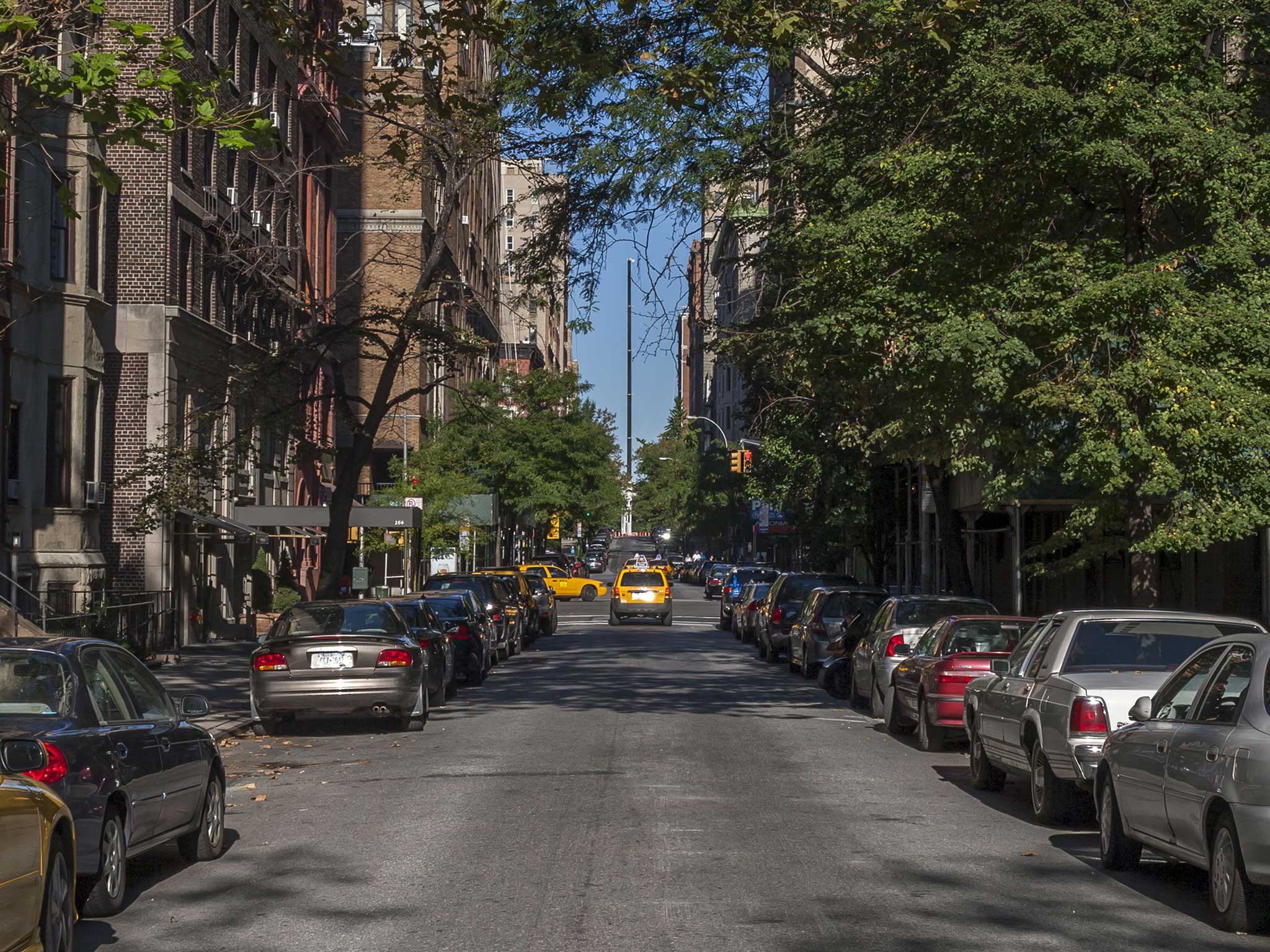As a black man who’s lived here all my life, I know the racist hypocrisy of the Upper West Side very well
I stood on the corner with my art supplies near my own apartment recently, and within minutes a white man had approached to tell me that this was a ‘family neighborhood’

As a 22-year-old black man who stands over 6 feet tall, my outward appearance radically impacts the way people perceive me. When my hood’s up, they cross the street. If I’m in a crisp button-down, I’m deemed one of the “good ones” and accepted in the neighborhood where I was born, raised, and currently still live: Manhattan’s Upper West Side.
Despite the Upper West Side’s progressive reputation, it’s always had its conflicts — and such differences have been starkly exposed over the past few months. The neighborhood has been guilty of passively supporting the Black Lives Matter movement with little active participation; after all, preaching liberal ideas is much easier when your daily life is not immediately implicated in the proposed “change.” And nothing underlines this more than the treatment of homeless men during the coronavirus pandemic.
The Upper West Side had a chance to directly support the Black Lives Matter movement when a temporary men’s shelter was created in The Lucerne Hotel on 79th Street and Amsterdam Avenue. The shelter was created by Project Renewal in late July to protect homeless New Yorkers from the spread of Covid-19 at overcrowded shelters. Black and Latinx people make up 53 percent of all New York City residents but account for 89 percent of the people sleeping in the city’s shelters. Further, the Covid-19 death rate for homeless New Yorkers is 61 percent higher than the general population. With minorities being disproportionately impacted by homelessness and Covid-19, race cannot be removed from the discussion of housing rights. The men of the Lucerne were moved there to protect black lives.
Despite the extreme circumstances, the Lucerne’s transformation into a temporary shelter was met with tremendous resistance. Many expensive apartment blocks began to house conversations about an uptick in crime. And although critics of the temporary hotel shelter claimed to sympathize with the struggle of these homeless New Yorkers, they failed to consider the destabilizing effects constant movement has on people attempting to find or maintain employment.
Eventually, a group of Upper West Siders hired lawyer Randy Mastro — Rudy Giuliani’s former chief of staff — to apply pressure on the DeBlasio administration by threatening a lawsuit. They demanded the relocation of the new homeless population, and thanks to a long online campaign which painted the Lucerne residents as criminals, their efforts were successful. But their actions had a wider impact.
Social media pages dedicated to capturing damning pictures of Lucerne residents committing crimes resulted in the targeting of any people that seem “out of place” on the Upper West Side. And that’s where I come in.
Growing up as a black man on the Upper West Side, I got used to the feeling of being watched. I’ve been trailed in grocery stores, stopped by police, and most frequently asked by neighbors what I’m doing in my own building. Having grown up in the same apartment I currently live in, I have spent far more time there than many of my neighbors that like to quiz me in the elevator and lobby. When situated against my blackness, however, they feel more entitled to stake claim over the building and the Upper West Side as a whole. But no one owns a neighborhood.
On the corner of 80th Street and Broadway, two blocks away from the Lucerne, I was waiting for a friend to pick me up in a car. My clothes and hands were covered in paint as I had just finished making signs for a Black Lives Matter protest. At my feet was a massive laundry bag filled with art supplies.
A miscommunication about my location resulted in me waiting on this block for about 25 minutes on a busy Sunday afternoon. Many people walked by, eyeing me with great suspicion. A middle-aged white man walking his dog passed by twice, before asking, “What are you doing here?”
“Waiting.”
“For what?”
“A friend.”
“You live around here?”
“Yep.”
“Where?”
“Not far.”
“But where?”
“I don’t give my address to strangers.”
“You know loitering is illegal?”
I didn’t answer.
Visibly concerned, the man took a few steps down the block before reaching for his phone. I could have started walking or covered my face but he would have likely made a bigger scene if I had, so I just let it happen. I looked away and he took a few more steps back to capture my entire body and the bag, that he must have assumed held some sort of nefarious items, with his camera. Seemingly satisfied with the picture, he left, but not before offering some parting words: “This is a neighborhood for families. Whatever you’re getting up to doesn’t belong around here.”
I’ve never felt entirely safe in my neighborhood, knowing how I’m often perceived as an outsider. Many would like to believe the Upper West Side of Manhattan is immune to racism compared to the rest of the country, but the same biases exist. The hostility the homeless men of the Lucerne faced has its basis in the same racism I faced when I was stood waiting for my friend that way not far from my own apartment.
When I was 12 years old, I was first stopped by the police, two blocks away from my home, and asked, “Do you live around here?” Make no mistake: The men of the Lucerne were moved because racism exists on the Upper West Side. Failure to recognize that will allow for cycles of hate and discrimination to continue.
Join our commenting forum
Join thought-provoking conversations, follow other Independent readers and see their replies
Comments
Bookmark popover
Removed from bookmarks